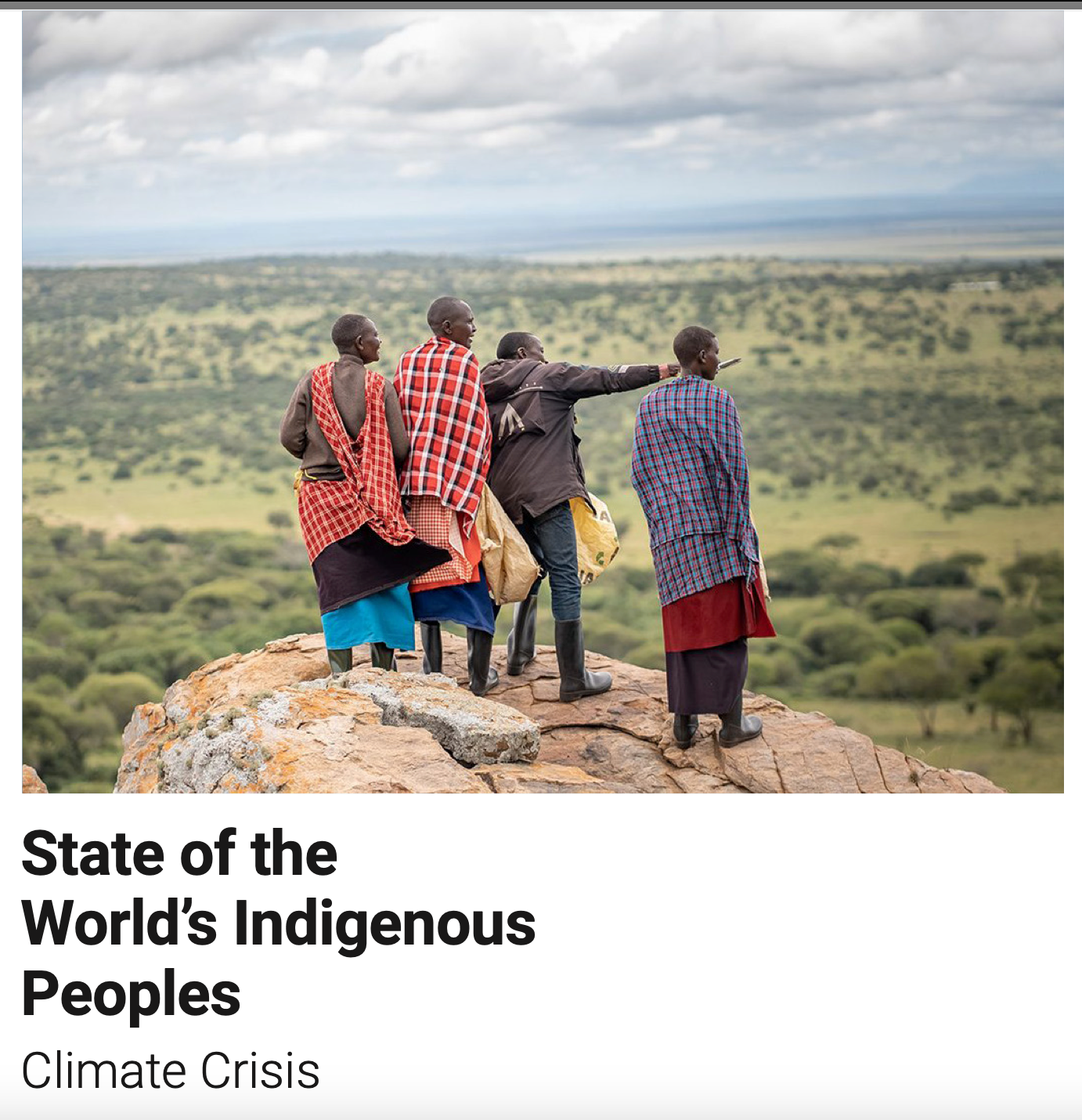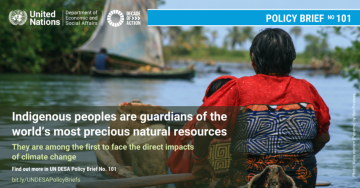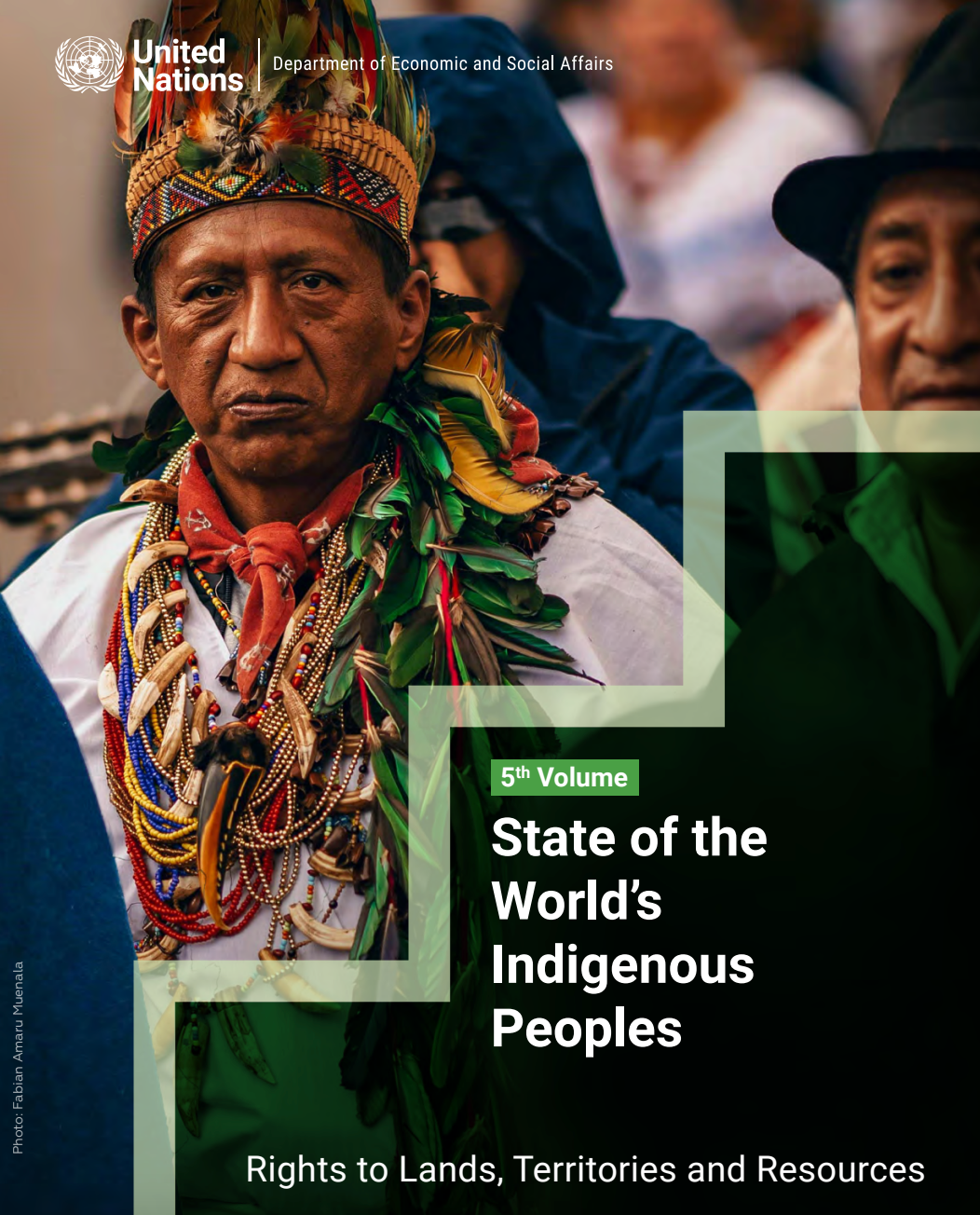Publications
Displaying 1 - 10 of 75
Flagship Reports |
The sixth edition of the State of the World's Indigenous Peoples focuses on Climate Crisis. It focuses on the vital role of Indigenous peoples in addressing the impacts of climate change. Although Indigenous Peoples account for only around 5 per cent of the world’s population, they effectively manage and protect an estimated 80 per cent of the Earth’s biodiversity and about 40 per cent of protected areas and ecologically intact landscapes. Since Indigenous Peoples first came to the United Nations, they have emphasized the fundamental importance of their relationship with their lands, territories and resources, which hold a deep cultural and spiritual significance within their societies.This…
UN General Assembly Reports on Social Development |
The Special Rapporteur on the Rights of Indigenous Peoples is requested by the Human Rights Council to present two annual reports: one at its regular sessions in Geneva, usually held in September, and another at the General Assembly, typically in October. These annual reports include a description of the activities carried out during the year within the framework of the mandate and often include discussions on specific themes or issues of particular relevance to the rights of Indigenous Peoples.
These reports to the General Assembly can be accessed here.
UN General Assembly Reports on Social Development |
UN General Assembly Reports on Social Development |
UN General Assembly Reports on Social Development |
In the present report, the Special Rapporteur on the rights of Indigenous Peoples, José Francisco Calí Tzay, focuses on the theme “Tourism and the rights of Indigenous Peoples”, analysing best practices and challenges in the promotion and respect of the rights of Indigenous Peoples to achieve positive community-based sustainable tourism outcomes.
UN General Assembly Reports on Social Development |
UN General Assembly Reports on Social Development |
At its 3rd plenary meeting, on 16 September 2022, the General Assembly, on the recommendation of the General Committee, decided to include in the agenda of its seventy-seventh session the item entitled: “Rights of Indigenous Peoples: “(a) Rights of Indigenous Peoples; “(b) Follow-up to the outcome document of the high-level plenary meeting of the General Assembly known as the World Conference on Indigenous Peoples” and to allocate it to the Third Committee.
UN General Assembly Reports on Social Development |
Policy Briefs |
Threats to indigenous peoples’ livelihoods and traditional knowledge
Climate change is the greatest challenge facing humanity today. Its effects, however, are disproportionately distributed, in particular affecting vulnerable and socially marginalized population groups. Indigenous peoples are among the first to face the direct impacts of global warming on the ecosystems or landscapes they inhabit, owing also to their dependence upon, and close relationship with the environment and its resources. Examples of the negative impacts include diseases associated with increasing temperatures such as, vector-borne and water-borne diseases; drought and desertification leading to forest fires and the…
Flagship Reports |
Indigenous peoples’ relationship to their lands, territories and resources is at the heart of their identity, well-being and culture. Preservation of the environment, transmitted through traditional knowledge passed down through generations, is at the centre of their existence. As the world is increasingly recognizing the negative impacts of climate change and environmental degradation on health, food security and overall peace and security, the importance of indigenous knowledge and territorial rights is beginning to be more fully acknowledged by society at large.
The 2030 Agenda for Sustainable Development offers further opportunities to promote the rights of indigenous peoples to lands…
 Welcome to the United Nations
Welcome to the United Nations


